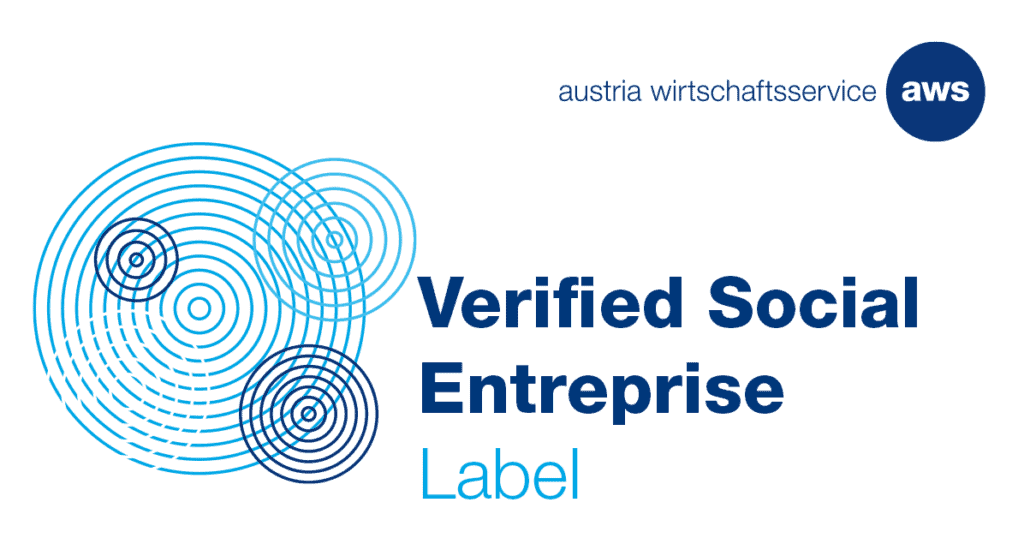How to apply correctly to NGOs: A professional attitude is required
Are you looking for a meaningful job that isn't just about earning an income? Good news: the number of available positions at NGOs is growing all the time. Your chances of finding a job are therefore good. But social commitment and advocacy for sustainable goals do not mean that a casual approach will bring success. Quite the opposite: even with NGOs, a professional approach counts.
Frequently asked question: How do I apply correctly?
At NGOjobs, our team regularly has a stand at various job and career fairs. People often ask us: "What is the right way to apply to an NGO?" In principle, it is important to follow all the guidelines for a conventional application.
Nowadays, for many young professionals and experienced professionals alike, sustainability is more important than greed. Who wouldn't want to discover other cultures with overseas services or HORIZONT3000 - or go on exciting adventures for Greenpeace? Jobs in the NGO sector are often attractive and interesting. In any case, they fill your professional life with meaning.
Application: The first impression counts
As a result, those responsible receive a large number of applications - regardless of whether it is for a full-time position or an internship. That's why the first impression counts when you apply.
A flattering and professional application photo is your chance to attract attention to your application. "A picture is worth a thousand words." This saying is particularly true for job applications. A tie, however, can look over the top. But a shirt looks better in a picture than a T-shirt.
But the photo is only your admission ticket. Spelling mistakes or incorrect formatting on your CV can quickly ruin a positive first impression.
Formalities aside, your personality and motivation count when applying for a non-governmental organisation - often just as much as your studies or previous career. Your letter should therefore get to the crux of the matter as quickly as possible.
Present achievements, avoid superlatives
Describe clearly why you can identify with the goals of an organisation. Ideally, you should be able to demonstrate that you have already been involved in this field. It is important that you highlight your achievements to date - without coming across as a show-off. You should definitely avoid superlatives. Even the best grades or a top place at graduation do not count as much as personal commitment.
Working in the non-profit sector is always about attitude. As a result, the expectations are high. A willingness to go above and beyond the call of duty is standard in this sector - which is why you should emphasise this in your application.
Important: Social and emotional competence
Social and emotional skills are more important than getting good grades when working for an NGO. For non-profit organisations, teamwork and communication skills are extremely important. Have you ever coached children or helped out in a retirement home? That's the kind of experience you should definitely include in your application.
Experience abroad and language skills are also important, since many NGOs have a global network. For many organisations, written and spoken English is a prerequisite. Some even require knowledge of at least two foreign languages. If language skills are stated in a job advertisement, it is better to prepare yourself for an interview in English.
The number of NGOs has been growing steadily for years and there is no end in sight to this development. The national and international problems are too big to be left to governments alone. Large organisations such as Amnesty International or Four Paws are managed in the same professional and structured manner as profit-oriented companies.
Professional, but not too formal
That's why being professional at work and in your attire is incredibly important. However, you should not be too formal. A suit and tie or a business suit will come across as a little too stiff at a job interview. Jeans or chinos with a smart jacket and shirt or blouse with an open collar represent a happy medium.
NGOs thrive on their employees being credible and their actions being transparent. In addition to fundraising, marketing, sales, HR management and financial accounting play an important role in all NGOs today - even in small organisations that only have a few employees.
In addition to social scientists, NGOs also need specialists with a degree in economics. Engineers and IT specialists are also in high demand. Together, they ensure smooth organization and make it possible to pursue idealistic goals.
Fast career progression is possible
Communication and the ability to work in a team are just as important for NGOs as flexibility. This is particularly important for smaller organizations. Career starters are often confronted with the fact that they have to take on several tasks at the same time. Improvisation and innovation should therefore not be foreign words for you. In return, you will often make rapid progress. It is not uncommon for the career step to management or board member at a small NGO to be surprisingly short.
What are you waiting for?




